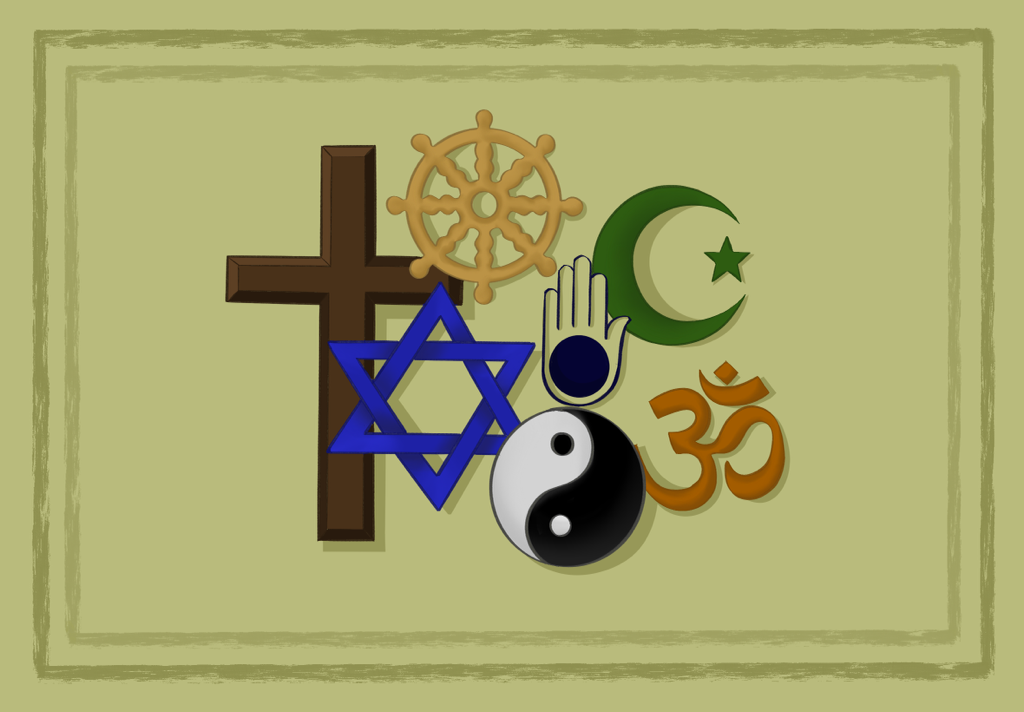
By Stan Cho ’25
Over the past few decades, opposition to religion has become a trend. The incessant scandals and controversies within religious institutions, as well as the clash between traditional religious teachings and modern values, has led to a decline in religious affiliation. Though I am accustomed to the casual criticism of religion amongst my peers, I remain astonished by the reasons for their remonstration. I do not intend to convert anyone reading this article, nor am I criticizing those with clashing creeds; I merely implore that after reading my piece, you consider reevaluating your stance on religion.
Growing up, my relationship with religion was muddled. The maternal side of my family was composed of devout Catholics, but my father was an atheist, and my remaining paternal relatives were Buddhists. Due to the religious ambiguity in my household, I strayed away from religious affiliation altogether. Though my parents hadn’t necessarily enforced their faith onto me, I felt an innate pressure to choose a side. And so, I decided to choose nothing.
One argument I used against religion is the claim that sacred stories are inconsistent with historical records and scientific knowledge. For a long time, I was a proponent of this critique. There is no proof that Jesus reincarnated himself. It’s impossible for Moses to have split the Red Sea. These sacred stories, as far as I was concerned, were fictional.
Choate students, including myself, have been given the privilege of exceptional schooling. With such comprehensive classes, it makes sense for us to want to align our worldview with the curriculum that is taught to us. Atheism provided me with a straightforward, pragmatic approach to life that religious nuances did not. What I failed to realize back then was that these sacred stories do not aim to assert an exaggerated depiction of human history; instead, they were created to explain moral ideas through lore. Religion, though emphasizing faith in a particular deity (or deities) and compelling its followers to practice certain traditions, is ultimately a guide on how to live an altruistic and noble life.
While religious institutions first emerged as the answer to our existential questions, they soon evolved into a means of spreading restrictive ideologies and justifying selfish convictions. Over time, followers began to slur those with variant affiliations by punishing heretics and waging wars. Instead of practicing the religious teachings of morality, some theists decide to police the beliefs of others.
Likewise, many contemporary religious institutions are notorious for their intolerance of dissenting beliefs. For instance, the controversial debate surrounding abortion is often crowded by moral convictions driven by ensoulment; in other words, many Christians believe that life begins at conception and that abortion constitutes murder. As such, followers have turned to vague, inapt scripture to fuel dissent instead of abiding by the fundamental teaching to nurture virtue and compassion for others.
It’s difficult to defend an institution responsible for centuries of violence and hate, but I believe there needs to be a distinction between the institution and the follower, between the institution and the core ideals of the religion. It would be ignorant to deny the sins of our ancestors, but it would be equally as insensible to deny the foundations upon which these institutions are established. In other words, though not all followers are good, they still have the capacity for good. They are simply misguided by dishonorable institutions that fail to deliver on the noble intentions of religion.
The corruption within religious institutions is reflected in faith culture at Choate. Though I can’t speak on behalf of followers of other religions practiced at Choate, I find that the religious activities provided at the School fail to provide sufficient resources for followers to practice their faith. The jarring informality during Christian Fellowship may make services more approachable to unacquainted students, but they do not provide spaces for more devout students to remain persistent and passionate in their creed.
Over the past few years, I have moved away from Atheism to Catholicism. It’s difficult to be proud to be a Catholic when several of my peers demonstrate a general lack of respect towards my faith. Nevertheless, Choate’s ability to celebrate a myriad of religions without integrating them into our curriculum is a step in the right direction.




